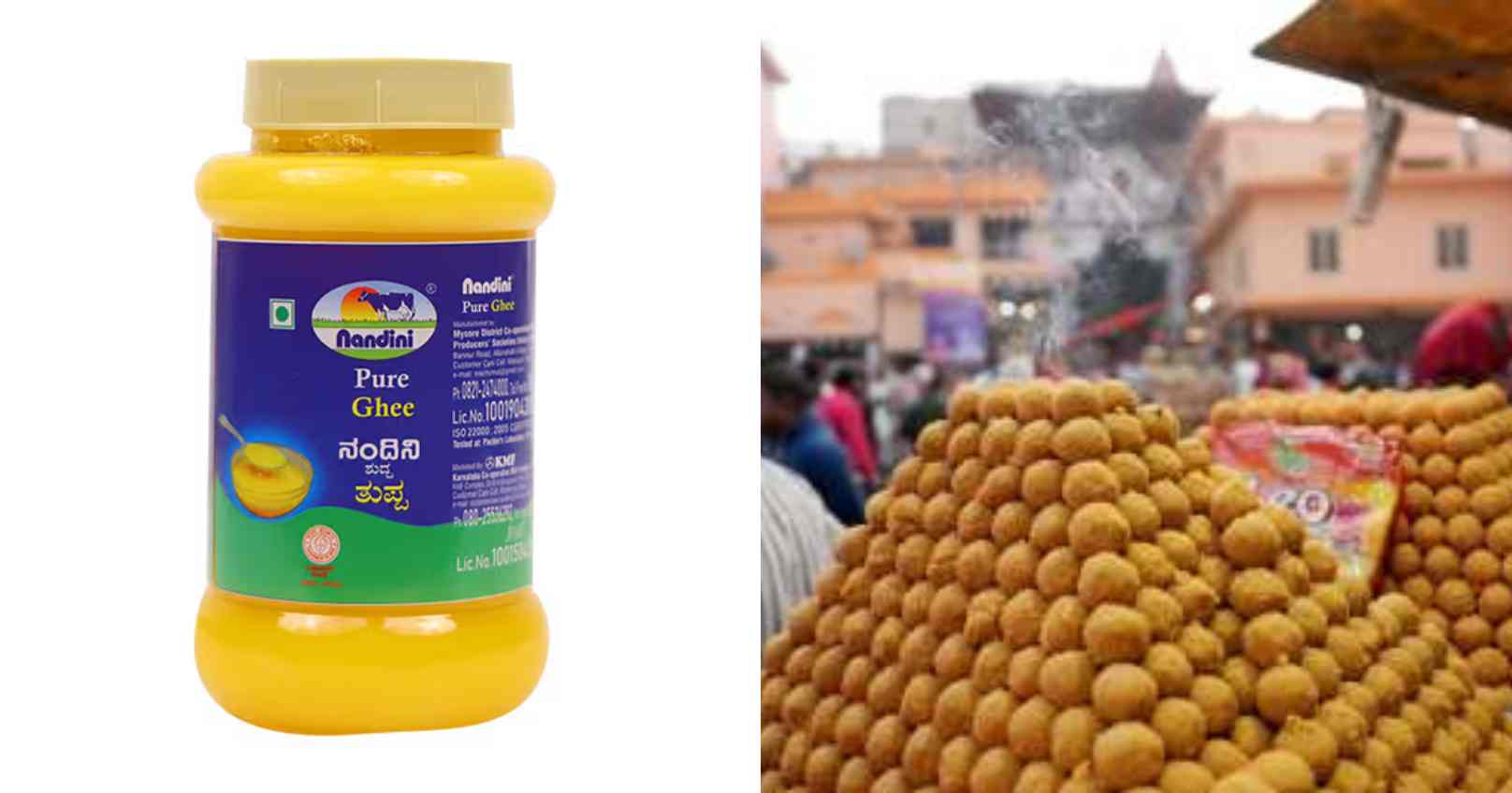A significant controversy has emerged over the use of ghee in the famous laddoos offered as prasad at the Tirupati temple in Andhra Pradesh. Amid this, the Karnataka government has issued a directive mandating the use of locally produced Nandini ghee in all temples across the state.
According to a recent government circular, over 35,000 temples in Karnataka must now exclusively use Nandini ghee from the Karnataka Milk Federation (KMF) in the preparation of prasadas (offerings) and in services such as lighting lamps. This policy applies to all temples under the Karnataka State Religious Endowment Department, as well as to Dasoha Bhavans, where food is distributed to devotees.
Karnataka Minister Ramalinga Reddy stated that most temples in the state, around 99 percent, already use Nandini ghee for prasad preparation. This move ensures that all temples will follow suit.
The controversy traces back to the Andhra Pradesh government's decision, under Chief Minister Jagan Mohan Reddy, to stop sourcing Nandini ghee from KMF after a 15-year relationship due to pricing disagreements. Recently, however, KMF resumed supplying Nandini ghee to the Tirumala Tirupati Devasthanams (TTD) under a directive from former Chief Minister Chandrababu Naidu, who sought to improve the quality of the laddoos.
The situation escalated after Chandrababu Naidu accused the previous YSRCP government of using substandard ingredients, including animal fat, in the making of Tirupati laddoos. These claims were strongly denied by the Jagan Mohan Reddy-led administration. However, the controversy deepened when a lab report revealed that ghee samples used in Tirupati laddoos contained foreign fats, including palm oil, fish oil, beef tallow, and lard, further fueling public outcry.







